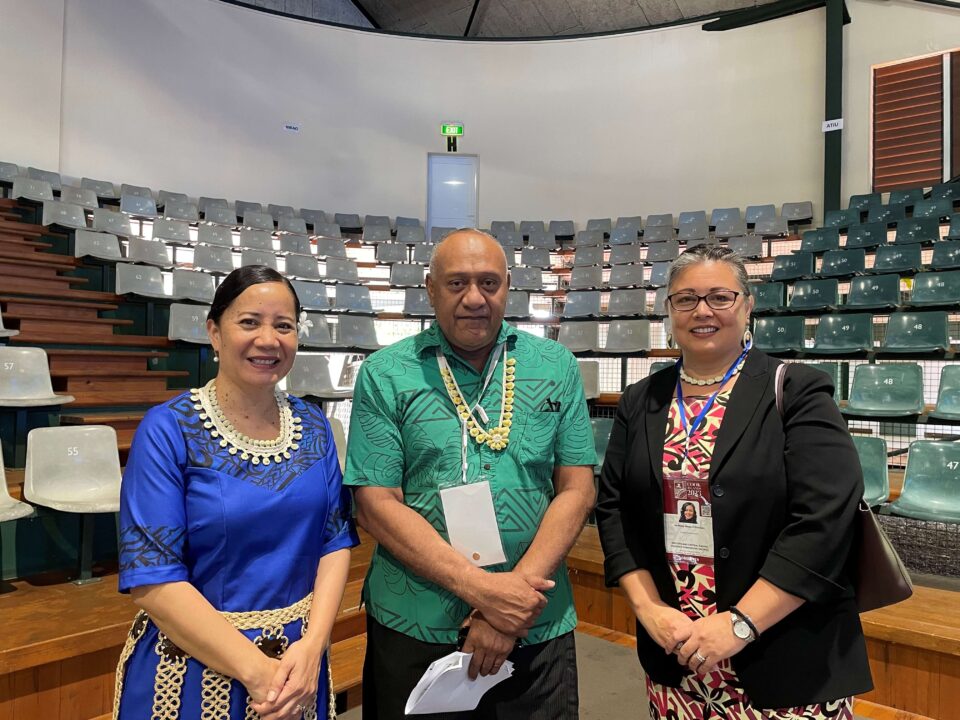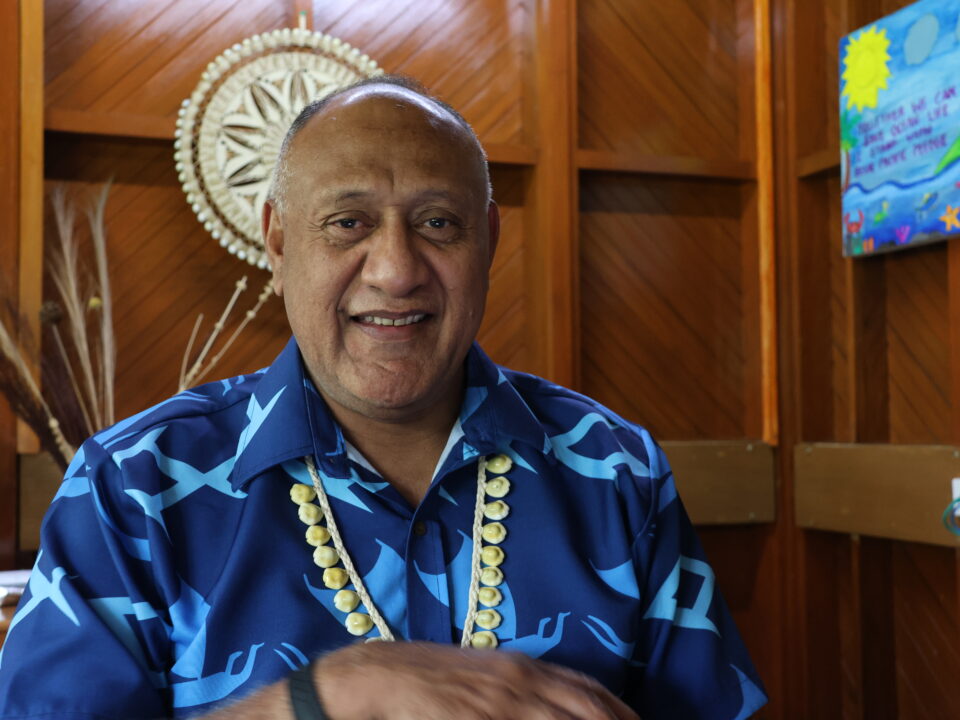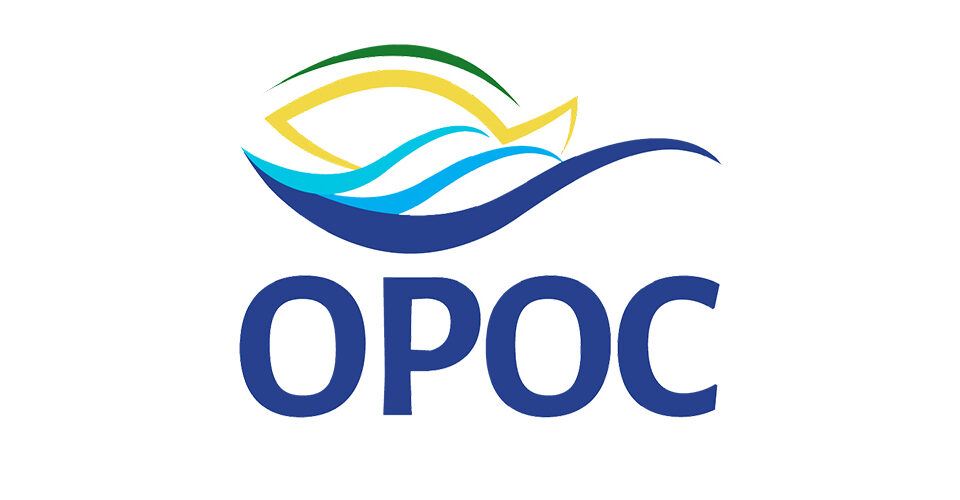
Regional Ocean Policy and
Governance Dialogue, OPOC, Hilton Denarau, Fiji 21 August 2023 – Remarks by Ambassador Peter
Thomson, UNSG’s Special Envoy for
the Ocean
Pacific Ocean Commissioner Manoni, Minister Victor,
Directors-General, Excellencies,
Ladies and Gentlemen
Ni sa bula. To those of you who have journeyed far to be with us, welcome to Fiji. I would like to thank the Pacific Ocean Commissioner for giving me the privilege of addressing you all at an early stage of this regional dialogue. Hopefully what I have to say will stimulate the expression of many other points of view and I look forward to hearing and interacting with these ideas over the next few days.
We can be grateful in the Pacific Islands, that we have such strong regional institutions. The saying goes, smooth seas never a skilful sailor made, and our institutions have battled many a storm to get to where we are today. My great admiration for our regional institutions comes from close on two decades of working in Fiji’s Ministry of Foreign Affairs, from a two- year secondment to SPEC (the predecessor of the Secretariat of the
Pacific Island Forum), and from the perspective of one of the group of Pacific Ambassadors in New York who relied heavily on the advice of our regional institutions back home for our informed positions at the United Nations.
Now in my role as the UNSG’s Special Envoy for the Ocean, I rely on advice from multilateral and regional organisations from around the planet. It is thus that I say we should be grateful here in the Pacific, for not only have our regional institutions stood the test of time and tide, but they continue to deliver collaborative solutions that serve the best interests of our region and thereby the world as a whole.
From its inception, the office of the Pacific Ocean Commissioner has held powerful potential. There can be no healthy planet without a healthy ocean, and the largest part of the ocean is what human beings call the Pacific. As such our responsibilities are as vast as the ocean itself. And so, to have a commissioner who speaks on behalf of this immense part of the ocean, means the authority of the Pacific’s voice is growing upon the global stage; and since we are challenged on many fronts by a planetary decline in the ocean’s health, the vital messages articulated by that voice become heavier with every passing year.
Many of our regional institutions have responsibilities relating directly to ocean issues – PIFS, SPC, FFA, SPREP, USP and more. But with the establishment of the Office of the Pacific Ocean Commissioner in Palau, and Dr Manoni’s assumption of office as the Commissioner, we are starting a new chapter. And it is a chapter that has huge implications for the understanding and advocacy of Pacific Ocean concerns and aspirations.
Accordingly, we must enter this new chapter in the most positive of spirits, for the challenges ahead are like mighty swells bearing down upon us. It behoves us all, the governments of the region and our regional institutions, not forgetting the multilateral organisations at global and Asia-Pacific levels, to give the Commissioner the space, the respect and the support his high office requires to fulfil the powerful potential of which I’ve spoken. As the UNSG’s Special Envoy for the Ocean, I pledge here today to do whatever is in my power to assist the Commissioner in his new role.
Time is not on our side. The decline in the ocean’s health, be it measured by indices of fisheries, pollution, acidification, deoxygenation or warming, is continuing. Biodiversity loss and the climate crisis worsen by the day. We have agreed upon conventions that can overcome these existential challenges, but they make a difference only if they are faithfully implemented, and the narrow window for doing so is closing with every passing year. It is in such a context that we find ourselves in the race to implement SDG14, our universal goal of conserving and sustainably using the ocean’s resources.
Great strides have been taken over the last two years in the direction of SDG14’s attainment. At the World Trade Organisation, the banning of harmful fisheries subsidies is progressing through the stages required and hopes are high that we’ll do the job on SDG14.6 by the time of the WTO Ministerial Conference next February. Meanwhile in November this year the Intergovernmental Negotiating Committee will be considering the first draft of the internationally-binding Plastic Pollution
Treaty that UNEA hopes to have in place by the end of 2024. Control of IUU Fishing is making slower progress, but with every new signature of FAO’s Port States Measure Agreement, we come one step closer to control. The conclusion of the High Seas Treaty (BBNJ) was a huge step forward for better governance of the ocean. And then at the CBD COP in Montreal last December, the protection of ocean ecosystems was given a major boost, through universal agreement under the Global Biodiversity Framework, to protect 30% of the planet by 2030.
All of these advances have been arrived at after sacrifices from many sides, but they all exist for the common good. What I want to emphasise is that none of them are anything but good intentions, until they are ratified back at national level, so that they can be brought into force at an international level. Therefore the catch-cry for us all to take home from Denarau is, “Ratify, ratify, implement, implement!”
Commissioner, In the shape of the 2050 Strategy for the Blue Pacific Continent, our Leaders have set us on course to a secure future that places great value on the ocean and land; and in the pursuit of this course, many of our governments are now devising their National Ocean Policies and Marine Spatial Plans. In all these efforts we are taking care to attain the balance envisaged by SDG14 between conservation and sustainable use, with intergenerational justice being observed as a guiding star.
As we voyage into a future made increasingly precarious by global warming, we begin to grasp the great importance of the emerging Sustainable Blue Economy. Many believe that in the not-too-distant future, the Sustainable Blue Economy will be the basis of human security, and as a loving grandfather I count myself amongst them. Many of us at recent UNFCCC COPs have called for movement of the Climate Finance needle in the direction of the Sustainable Blue Economy, and I’m pleased to say there is evidence the needle is moving.
We do not want millions or billions of dollars to flow to the Sustainable Blue Economy, we want trillions of dollars. Why? Because we need those dollars to secure the health of the Ocean, and thereby the planet, and thereby the well-being of our grandchildren. We need the trillions of dollars to decarbonise the global shipping fleet and the ports that service it, funding a transformation that has already begun, moving from powering our ships with the filth of bunker oil to pollution-free green hydrogen and other decarbonised propulsion systems.
We need the trillions, because if we invest now in offshore energy, in wind, tidal, wave and other Ocean technologies, we will have all the renewable energy we need, many times over, to power sustainable ways of life on this planet. We need the trillions of dollars invested to feed the future through sustainable aquaculture and farming the Ocean to produce new sustainable, nutritious forms of future food, seaweeds, phytoplanktons and other ethical, non-fed forms of aquaculture.
We need the trillions for the scientific research of the Ocean that will help us understand the currently unknown properties that amongst so many other benefits, will secure our health in the post-antibiotic age.
Commissioner, In conclusion, I hope we will see many of those present with us today in Nice in the early weeks of June 2025. As you well know, we will be gathering there for the third UN Ocean Conference to support the implementation of SDG14. I’m pleased to say that I have recently visited Nice to confer with the Mayor and inspect the conference site, and I can assure you we have an excellent venue for the conference.
Building upon the experience of the two previous UN Ocean Conferences, supported by the UN Secretariat and my office, the Conference’s organising committee has commenced its proceedings under the co- chairmanship of the 2025 co-hosts, Costa Rica and France. I should tell you that the co-hosts have decided to place special emphasis on Ocean Science and the financing of the Sustainable Blue Economy, with work now well underway in both cases to hold special events on these subjects. It is also encouraging to observe that the Communities of Ocean Action are being refreshed under UNDESA guidance and are proceeding with their preparations for the 2025 Conference. I encourage you all to follow these and other developments on the UN Ocean Conference website and to get involved in the preparatory process.
The UN Ocean Conferences expressly exist to keep the process of implementing SDG14 honest. They would not exist were it not for the insistence of Pacific Small Island Developing States that, in the first place, SDG14 be brought into existence, and in the second place, that the Ocean Conference process be adopted to keep our universal ocean goal on track.The attainment of SDG14’s targets will mean so much for the prosperity and security of our region. Thus it is reasonably expected by the international community that the Pacific region will continue to serve in the vanguard of ocean ideas, partnerships and commitments. We now have in Dr Manoni and the Office of the Pacific Ocean Commissioner the
convenor we need to lead and rally us in that vanguard. Let us use the regional dialogue this week in Denarau to energise our approach to the next UN Ocean Conference, assisting the Pacific Ocean Commissioner to pull together the many strengths inherent in our regional institutions, to make the impact on global decision-making that we need for the ocean we want, and the well-being of our people and the ecosystems within which they survive. Vinaka vaka levu. I thank you for your attention.



